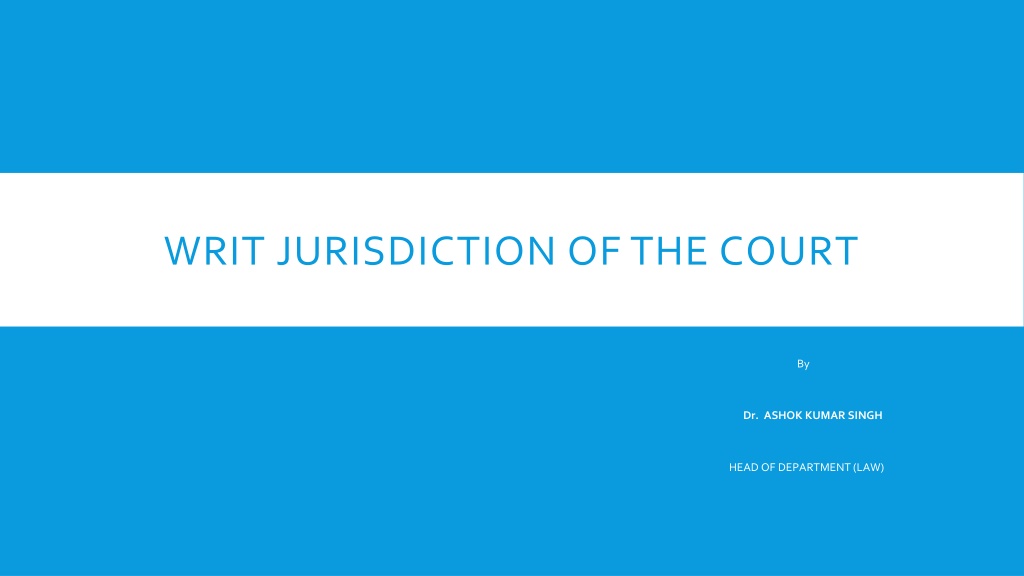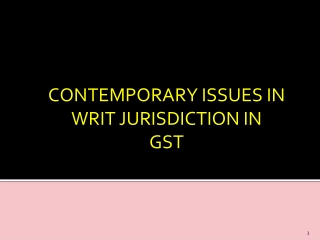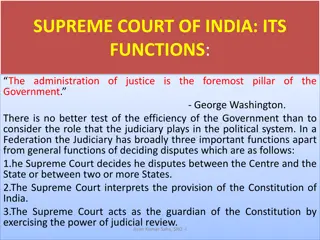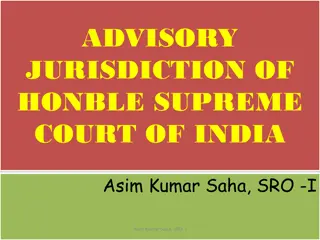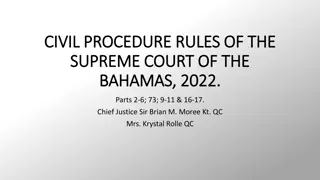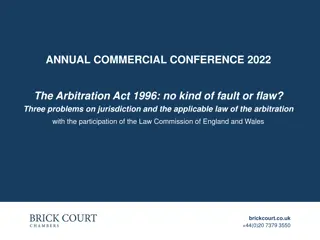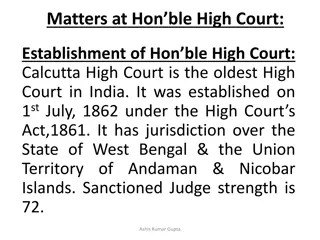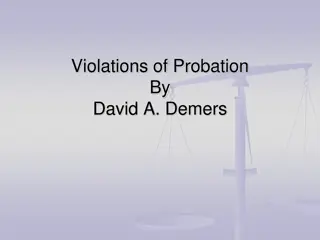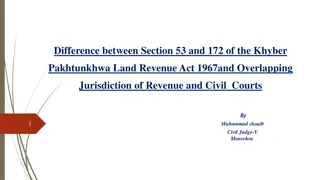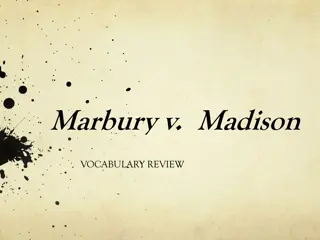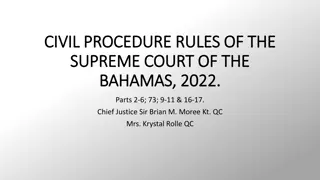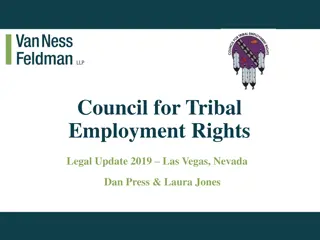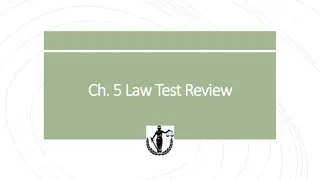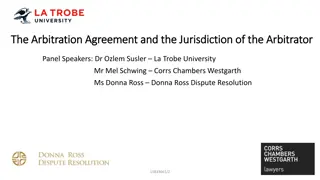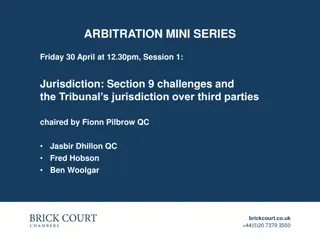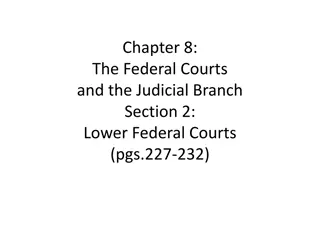Understanding Writ Jurisdiction of the Court: Key Concepts and Types Explained
Explore the jurisdiction of the court in the issuance of writs, including the general meaning of writs, constitutional remedies under the Indian Constitution, types of writs such as Habeas Corpus, Mandamus, Prohibition, Certiorari, and Quo-warranto, with detailed explanations and case references.
Download Presentation

Please find below an Image/Link to download the presentation.
The content on the website is provided AS IS for your information and personal use only. It may not be sold, licensed, or shared on other websites without obtaining consent from the author. Download presentation by click this link. If you encounter any issues during the download, it is possible that the publisher has removed the file from their server.
E N D
Presentation Transcript
WRIT JURISDICTION OF THE COURT By Dr. ASHOK KUMAR SINGH HEAD OF DEPARTMENT (LAW)
WRIT GENERAL MEANING: A formal order in writing issued under seal in the name of a sovereign, government, Court or other authority, commanding an officer or other person to whom it is issued, to do or refrain from doing some act specified therein.
CONSTITUTIONAL REMEDY Under the Indian Constitution, Supreme Court and High Court are empowered to issue writs, for the enforcement of fundamentalrights. Article 32- It grants an extensive original jurisdiction to the Supreme Court with regards toenforcement of Fundamental Rights. Article 226- It can be exercised by the High Court not only for the enforcement of Fundamental Rights butalso for otherConstitutional Rights.
TYPES OF WRIT Habeas Corpus Mandamus Prohibition Certiorari Quo-warranto
HABEAS CORPUS Itis aLatin term which means you mayhave the body . It is an order by a Court to the detaining authority to produce the arrested person before it so that it may be examined whether the person has been detained lawfully or otherwise. If the Court is convinced that the person is illegally detained,it canissue order for his release. General rule is that an application can be made by the person who is illegally detained. But in certain cases, an application of habeas corpus can be made by anyperson onbehalf of the prisoner, i.e. afriend or arelation. Sunil Batra vs. Delhi Administration And Others AIR 1980 SC 1579
MANDAMUS Iis aLatin term which means WECOMMAND . It is an order from a superior Court to a lower Court or tribunal or public authority toperform anact,which falls within its duty. Simply, it is a writ issued to a public officials to perform his duty, which he has failed todo sofar. This writ cannot be claimed as a matter of right. It is the discretionary power of theCourt toissue such writ. Barada Kanta vs. State of West Bengal, AIR 1963 Cal. 161. inthis case writ of mandamus does not lie against a private individual or private organisation becausetheyarenotentrusted with a public duty.
PROHIBITION Itmeanstoforbid or tostop andit is popularly known as stayorder . It is a writ issued by a superior Court to lower Court or a tribunal forbidding it to perform an act outside its jurisdiction or acting contrary to the rules of natural justice.After the issue of this writ, proceeding in theCourtstop. S. Govinda Menon vs. Union of India, AIR 1967 SC 1274.Inthiscase it was held that this writ will be issued in both cases where there is excess of jurisdiction andwhere there is absence of jurisdiction.
CERTIORARI Literally,Certiorari means tobe certified. The writ of Certiorari is issued by the superior Court to inferior Court or tribunal to transfer the mattertoit or tosome other authority for proper consideration. It may be used before the trial to prevent an excess or abuse of jurisdiction and remove the case for trial to higherCourt. It is invoked also after trial to quash an order which has been made without jurisdiction or in violation ofthe rules of naturaljustice. Hari Vishnu Kamnath vs. Ahmad Ishaque, AIR 1955 SC 233. Inthis case Supreme Court held that, the object of the writ of prohibition is in short prevention rather than cure, while certiorari is used asacure .
QUO-WARRANTO The word Quo-Warranto literally means, on what authority one is holding the public office . It is a writ issued with a view to restraining a person from acting in a public office towhich he is notentitled. For example, a person of 62 years has been appointed to fill a public office whereas the retirement age is 60 years in that office. Now, the Court has a right to issue this writ againstthe person anddeclare the office vacant. Any member of public can challenge the right ofaperson tohold apublic office. Jamalpur Arya Samaj Sabha vs. Dr. D. Ram, AIR 1954 Pat. 297.In this case it was held that the writ of quo-warranto is not issued in respect of an office ofaprivate character.
THANK YOU Wish to meet you soon ..
